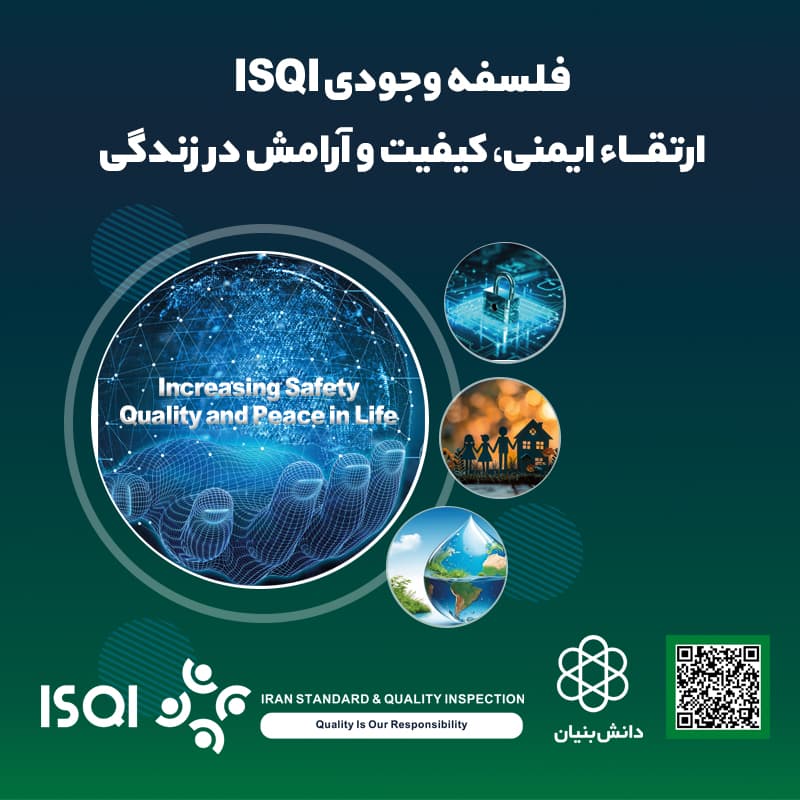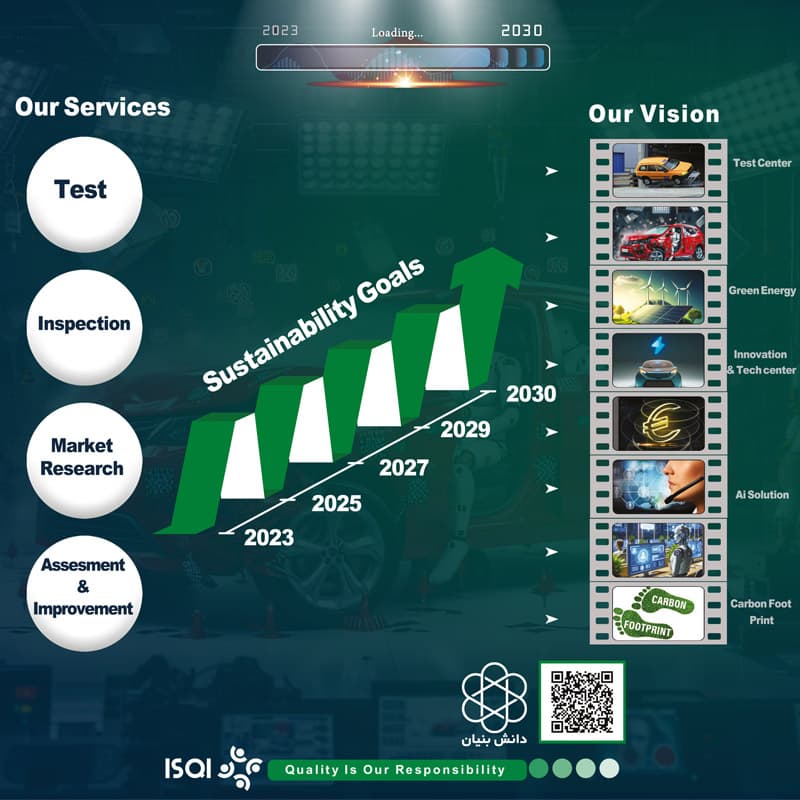Iran Standard and Quality Inspection Company is active in the field of consulting, establishment and implementation and auditing of GMP, ISO22000, HACCP, BRC, IFS, FSSC22000 systems due to having a food and drug approval license and using consultants and experienced experts. This department provides all importers, exporters, manufacturers, distributors and suppliers with a wide range of quality control services, safety and risk assessment, product testing and analysis, and inspection in accordance with international and national standards.
Consulting and implementation of food industry safety standards including GMP, ISO22000, HACCP, BRC, IFS, FSSC22000 systems
Iran Standard and Quality Inspection Company (ISQI) was established in 1989 with the aim of providing technical, engineering, consulting and research services to improve the quality of manufactured products and protect the rights of consumers, develop the standards required by industries and monitor the good implementation and also good services of the project.
This company has operated with three decades of activity in the field of technical inspection and providing engineering and consulting services in various industrial fields and having quality management systems and safety, occupational health and environment management and approval of qualifications. From competent authorities such as the Presidential Strategic and Supervision Office, the National Standard Organization of Iran, the Ministry of Industry, Mining and Trade, the Environmental Protection Organization, the Consumer and Producer Protection Organization, the Central Bank of the Islamic Republic of Iran, the National Oil and Gas Companies, and Tavanir( Development of electricity production, transmission and wholesale facilities) And the Food and Drug Organization has been able to provide quality and valuable services to customers in various fields by attracting and utilizing the power of expert and experienced experts in the field of providing technical inspection and consulting services.
The production of a healthy and suitable product for use requires the creation of conditions and infrastructures that are called GMP and GHP in short in the food, drug and medical equipment industries. Good Manufacturing Practice (GMP) is a part of the quality assurance system that ensures that the product is produced and controlled in a uniform and appropriate manner. Also, the food safety management system standard ISO 22000: 2018 covers the prevention, elimination and control of food safety risks from the point of production to the point of consumption.
Since food safety hazards can occur at any stage of the process, companies involved in the food supply chain must implement adequate risk controls. Maintaining food safety is only possible with the joint efforts of all parties involved including producers, retailers, final consumers and the government as policy makers and regulators. ISO 22000:2018 applies a new approach to risk as a fundamental concept in the food business.
The experts of the Iran Standard and Quality Inspection Company are capable of consulting, implementing, establishing and training the mentioned system in different grades, including food, pharmaceutical, cosmetics, etc. Also, due to the presence of auditors in all parts of the world, the speed of execution, reasonable cost compared to other inspection companies, expert and experienced consultants inside and outside the country in the field of food and cosmetics, and accuracy in presenting reports, he pointed out.
Risk assessment system and Control of Critical Points
This standard is used to manage food safety risks. The HACCP system allows you to identify hazards and create controls to manage them in your production supply chain. This standard includes the requirements of the “Codex Nutrition Committee” (CAC) established by the World Health Organization and the Food and Agriculture Organization of the United Nations in order to unify international food standards, guidelines, and regulations for conducting business. This standard can be used to support the requirements of management standards, such as ISO 22000 (food safety management).
Benefits of HACCP
- Implementation of risk control and food safety at the international level;
- Build confidence in controls for manufacturers, stakeholders, and suppliers;
- Aligning HACCP with ISO 22000 to improve food safety management systems
Effective management of food safety risks in the supply chain:
1) continuously reviewing and improving your system to maintain its efficiency;
2) improving the level of product safety;
3) appropriate prevention methods;
4) Knowing ways to improve the production process;
5) increasing product quality and stability;
6) reducing the cost of final product testing;
7) reducing waste;
8) increasing the amount of supervision;
9) less need for technical resources;
10) increasing the responsibility of employees;
11) increasing consumer confidence;
12) increasing the market share;
13) presence in international markets;
14) increasing the stability and security of trade;
15) increasing employee performance;
Obtaining the HACCP certificate means that the relevant organization or company has accepted an international agreement, during which the risk analysis and control of the critical points of the food safety system are examined. In this food safety certificate, microbiology will be analyzed and the entire food health risk will be eliminated.
The process of auditing food industry factories
– Registration of the source and registration of the requested product in the TTAC system by the technical officer of the factories and companies that import raw materials for the food, cosmetic and health industries
– Holding the technical and legal committee of the Food and Drug Organization and announcing the committee’s decision
– Communication with Iran Standard and Quality Inspection Company (ISQI) and description of services
– Sending a letter of introduction of the inspection company on behalf of the applicant company to the Food and Drug Organization
– Receiving the notification of the Food and Drug Organization regarding the audit by the inspection company
– writing a contract
– Establishing coordination between the qualified audit by ISQI located in the country of origin and the quality assurance manager of the origin factory and determining the date of the audit.
– Conducting an audit and sending a report to an expert based in ISQI
– Sending relevant reports, documents and checklists according to the format of the Food and Drug Organization
– Sending inspection report letter numbers to the applicant company
– Notification of the inspection result to the applicant company
For more information, please contact us.
Telephone: 021-4399044000-internal 134-120 Ms. Khalaj







